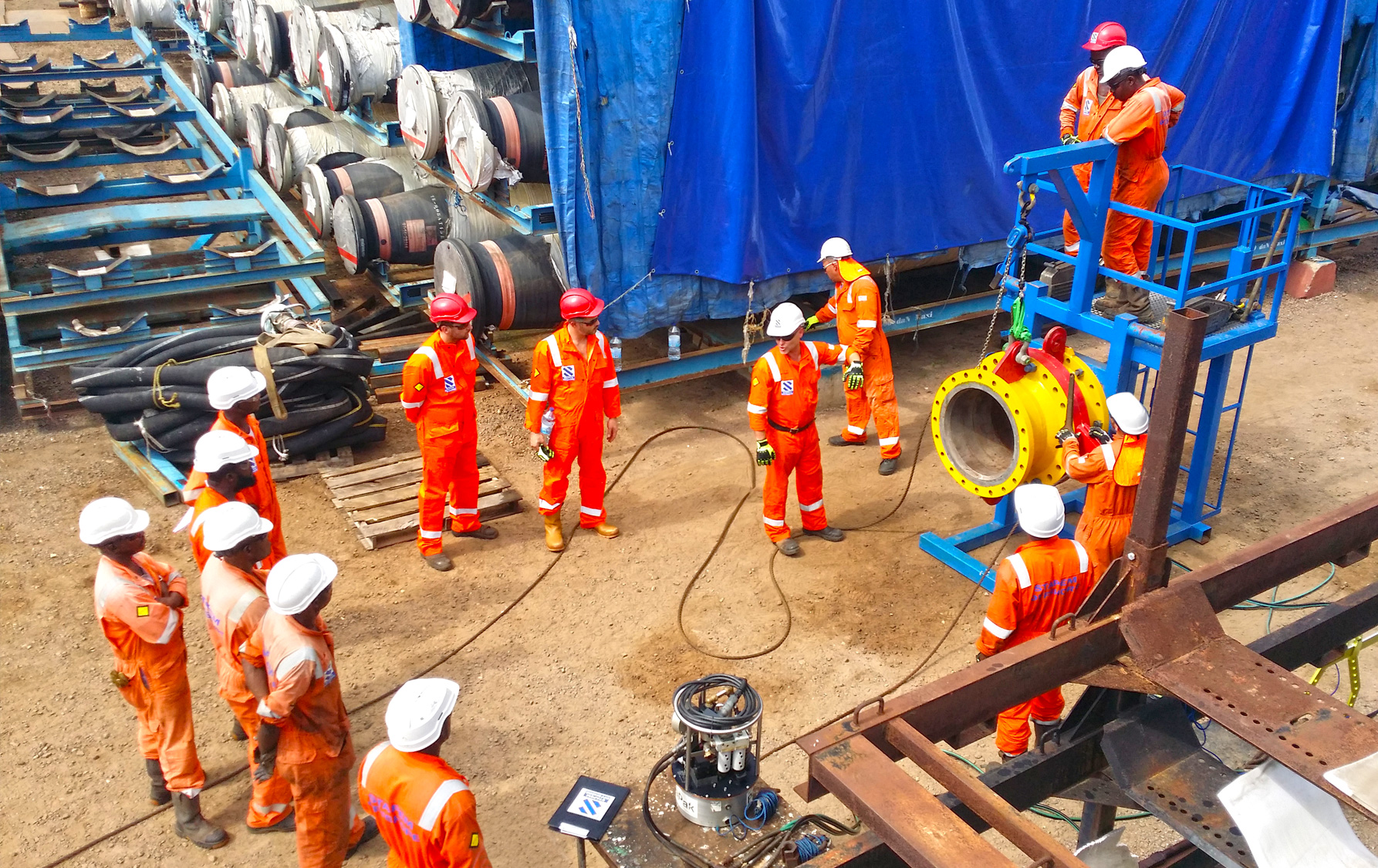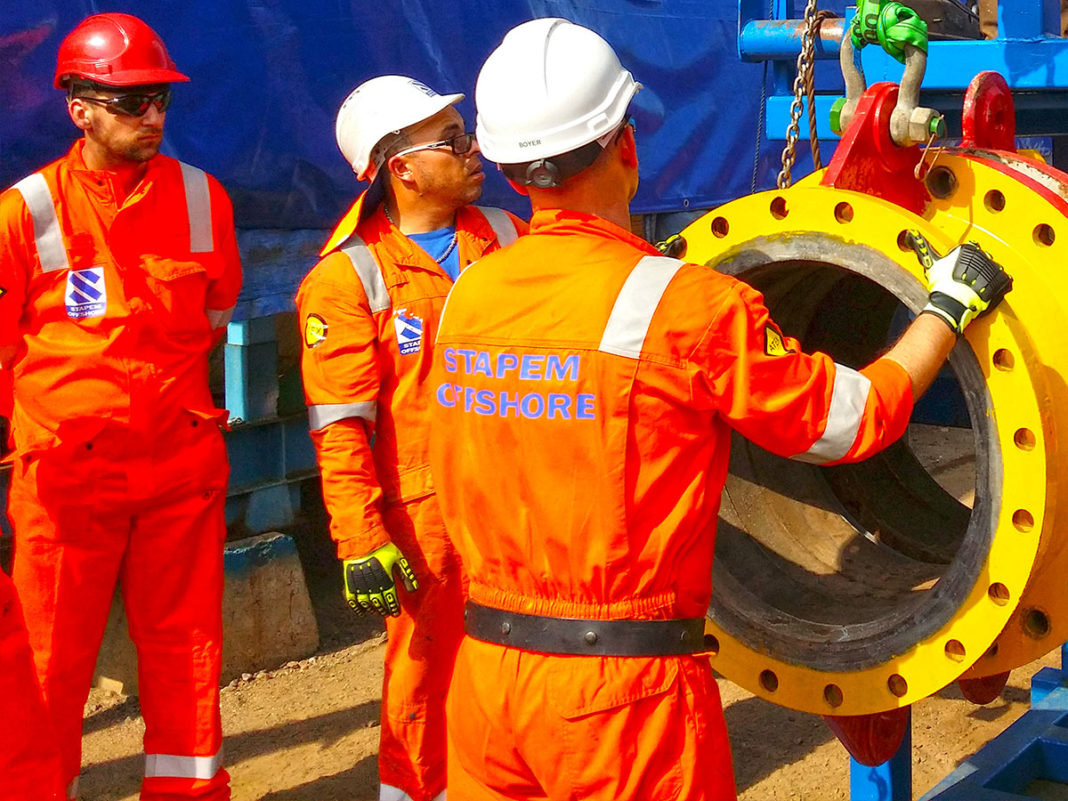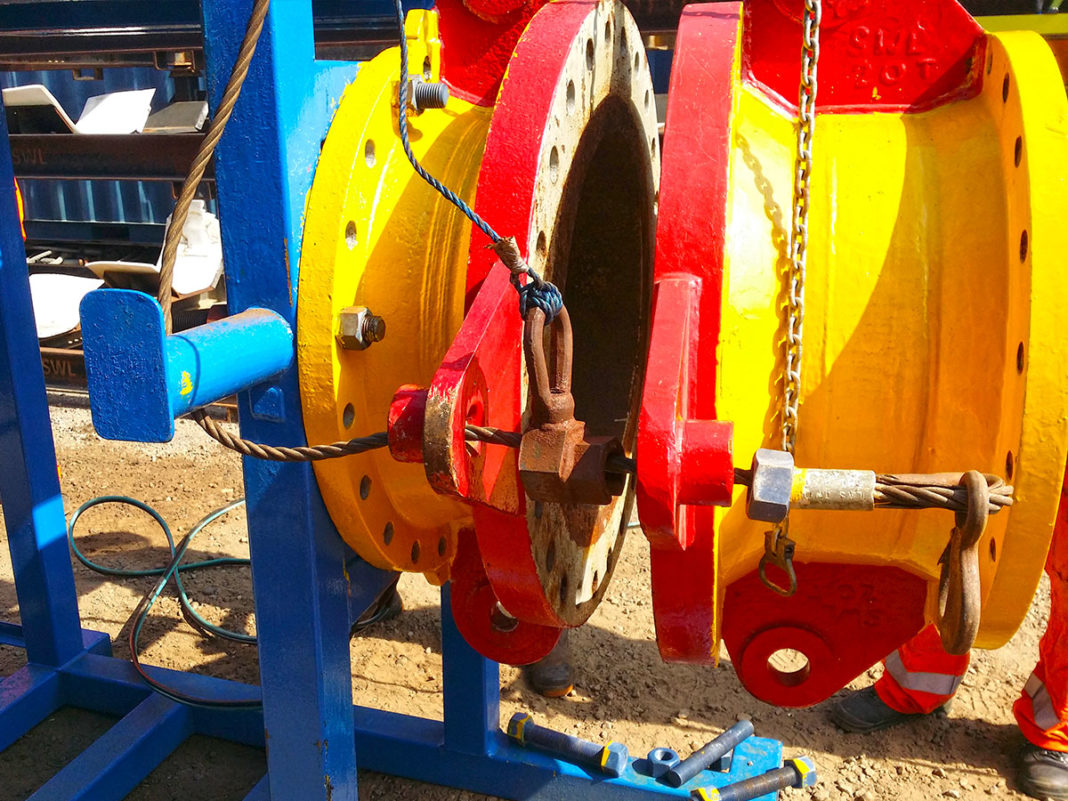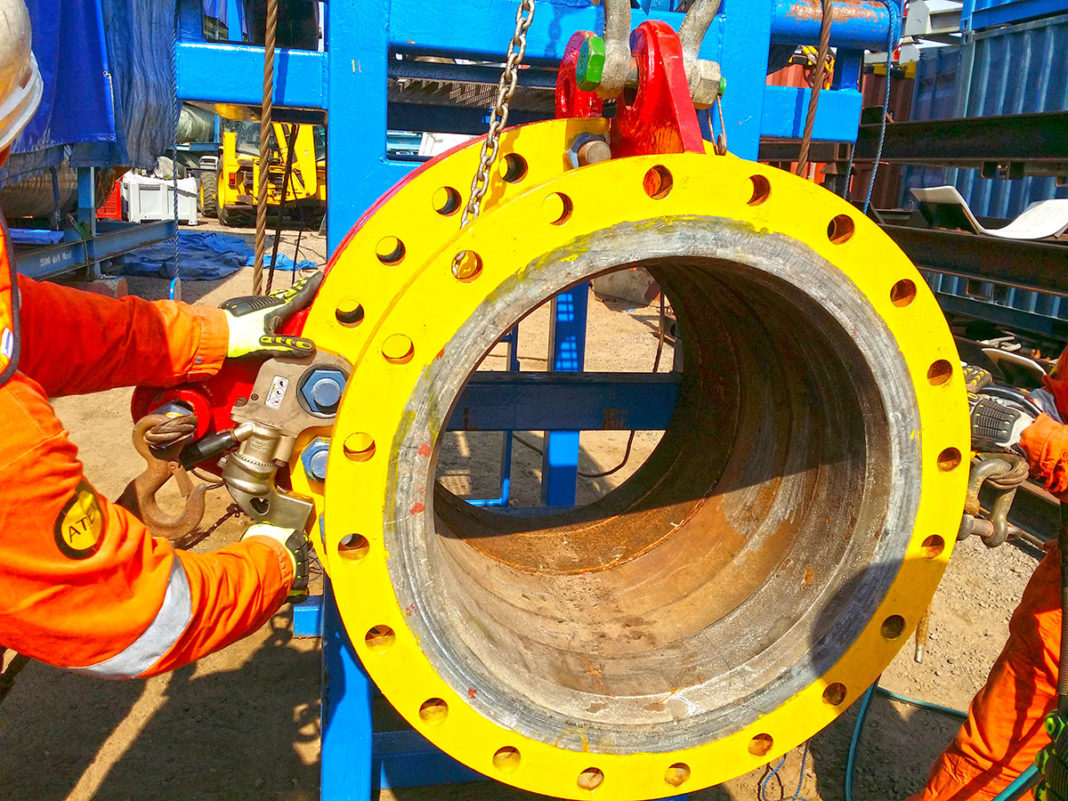
05 Nov Safe flange torquing in Soyo
Our hands and fingers are our most valuable tools
The hand is one of the most complex parts of our body – the movement of the tendons, bones, tissues and nerves allows us to grip and do a wide variety of complex jobs.
Without our hands it would be extremely difficult to do routine simple tasks, such as opening doors, using a fork, or tying our shoes. Hand injuries are likely when the wrong tool is used or the right tool is used improperly.
Delivering safe & efficient hose services
Obtaining a leak-free flange connection can be a difficult task on-site without a plethora of equipment to fall back on. This is even more true when the operation takes place offshore, with tough weather conditions. A proper gasket installation, bolts with correct tension, and an evenly divided bolt strength must be adhered to create a good flange connection.
In our Kwanda base (located in Soyo, near to Angola’s most productive offshore blocks), we provide all aspects of floating hose management. Line assembly, disassembly, torquing, cleaning, inspection: these operations require dexterity & regular training.
An homemade simulator for safe flange torquing
Based on these observations, our teams in Soyo build an homemade training equipment to explain to the workers the importance of crush & pinch points. Hands and fingers must be kept clear from these areas at all time.
This simple yet effective color code system warns of safety hazard and should prevent bolting incidents and increase productivity on the job. On-site safety training is given to tool operators on a regular basis to make sure that anyone who handles a tool is up to date on the latest safety procedures. Keep torquing safe!
#letsgostapem







